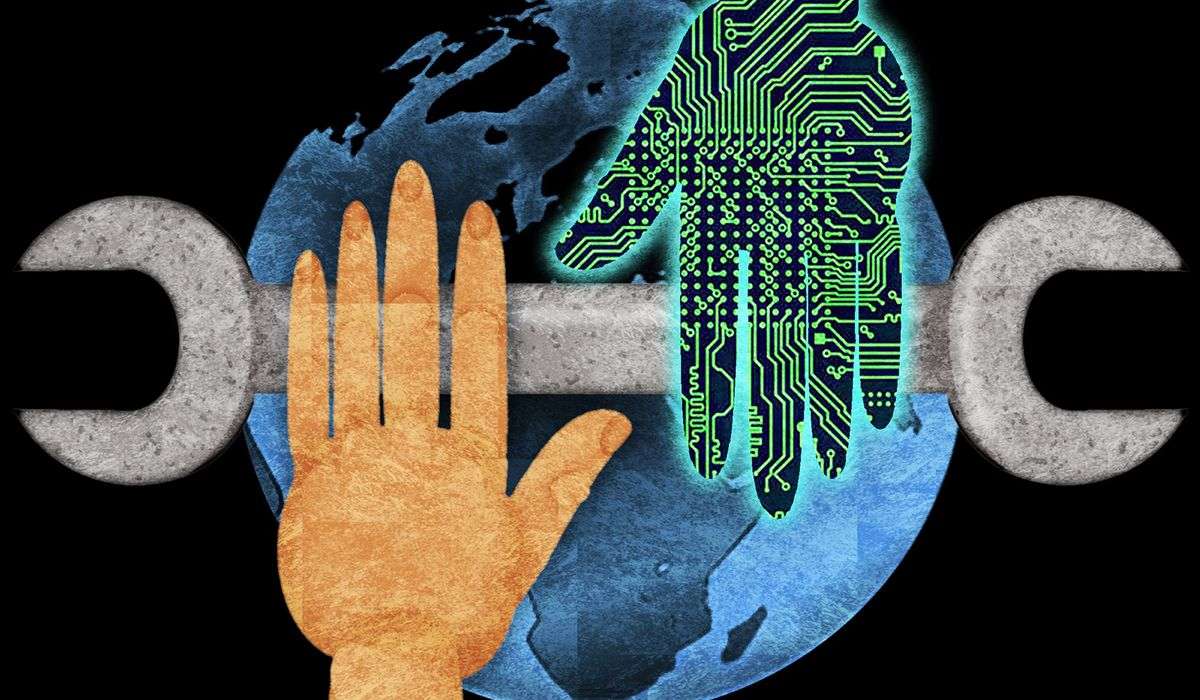Humanity must prepare for the changes AI will bring

OPINION:
Oil got upset, “What’s up with you?’”said she then (thinking fast)
With empty words you praise yourself; why aren’t you pale, aghast?
The Japanese have ruined you — for five one can acquire
A pearl that cost a hundred once; it’s ended your, your empire!
If the advent of petroleum and the introduction of the Japanese cultured pearl threw the labor systems of the Gulf region into disarray a century ago, the potential disruption posed today by artificial intelligence is no less dramatic. Now, as then, there are grave risks as well as opportunities if governments manage the transformation responsibly.
Unfortunately, civilizations historically have struggled with labor market shifts.
The above verse, translated from the 1935 poem “The Debate of Pearl Diving and Oil-Wells,” is an example of the Arabian “munadara” or “debate poem” tradition, in which two diametrically opposed, anthropomorphized subjects take turns defending the merits of their position.
It was written as petroleum wells proliferated after the discovery of oil, symbolically and physically displacing an economic system around the pearl industry that sustained the region for millenniums but was being decimated by cheaper imports suddenly available from East Asia.
As “Pearl-Diving” retorts:
I’m boss there is no doubt
Want proof? Well they all work for me who’re living hereabout
I raised them as my own; they are my heart my very breath
But you, fountain of oil and tar, you’ve starved them half to death!
We can certainly do better in the current transformation, even if the situation is no less precarious.
Artificial intelligence could replace up to 300 million jobs worldwide in a world that is aging fast and struggling to maintain the skill levels for the changing nature of work.
By 2050, 40% of people in East Asia and Western Europe will be over 65. Worldwide, 44% of workers require upskilling to do their jobs more effectively. And already, more than 3 in 4 global businesses are struggling to hire employees with appropriate skills.
We all need to discuss and plan for these changes now.
In early November, 28 countries agreed to the Bletchley Declaration on responsible use of AI, including its impact on employment. Earlier in June, another summit in France weighed a global financial architecture to enhance economies and labor markets in developing nations.
In the U.S., the Biden administration recently unveiled a strategy to advance global labor standards. And my own country, Saudi Arabia, has put forward Vision 2030, an economic and social transformation plan that includes inclusive and diversified labor markets.
These efforts represent the tip of the iceberg of what is needed. Though indicative of progress, these disparate national-level and multilateral mechanisms still lack cohesiveness to meet the challenges of the global labor market.
No country or institution can manage this shift on its own, and that is why Saudi Arabia is launching the Global Labor Market Conference on Dec. 13-14 in Riyadh.
The event will convene an unprecedented cross section of global labor market stakeholders, including government officials, representatives of multinational organizations, business leaders, labor organizations and academics.
Many of the challenges facing each of these stakeholders in each of our countries are the same and intertwined: AI and emerging technologies, skill and talent gaps, inclusivity, regional dynamics, futureproofing and issues related to upskilling, demographic change and regulation.
We should start with knowledge exchange, including among actors from differing labor market traditions. For example, America’s recent memorandum reflects a labor tradition based on democratic procedures and organized unions, while Vision 2030 emphasizes focused, centralized decision-making. But the lessons and experiences that each derives can be invaluable for everyone.
At the conference, we will build a common platform for countries to exchange best practices. Collective shocks such as the COVID-19 pandemic and the 2008 global financial crisis illustrated how labor markets can be irreversibly altered seemingly overnight. In the current environment, we need to ensure the current transformation isn’t subject to a disjointed response but benefits from collective preparation.
We have seen how shocks and disruptions in one country or region affect us all: epidemics, financial instability, threats to international security. Mismanagement of labor markets represents a similar transnational peril.
We don’t have to adopt the same labor models to avoid the same pitfalls or seize the same opportunities. The AI revolution and the enhanced protection of workers, employers and social stability can march hand in hand.
As “Pearl Diving and Oil-Wells” concluded decades ago, there out to be a space for cooperation despite differences:
Each one of them magnanimous, from each the anger gone,
Instead of trading jibes my friend the combatants they joked on!
In front of me the two embraced, shook hands (and made amends)
And having thanked me, bade farewell, and drove off like two friends.
• Ahmed bin Abdul Jaber Al-Yamani is CEO of Takamol, a government company focused on empowering and innovating labor markets in Saudi Arabia.






